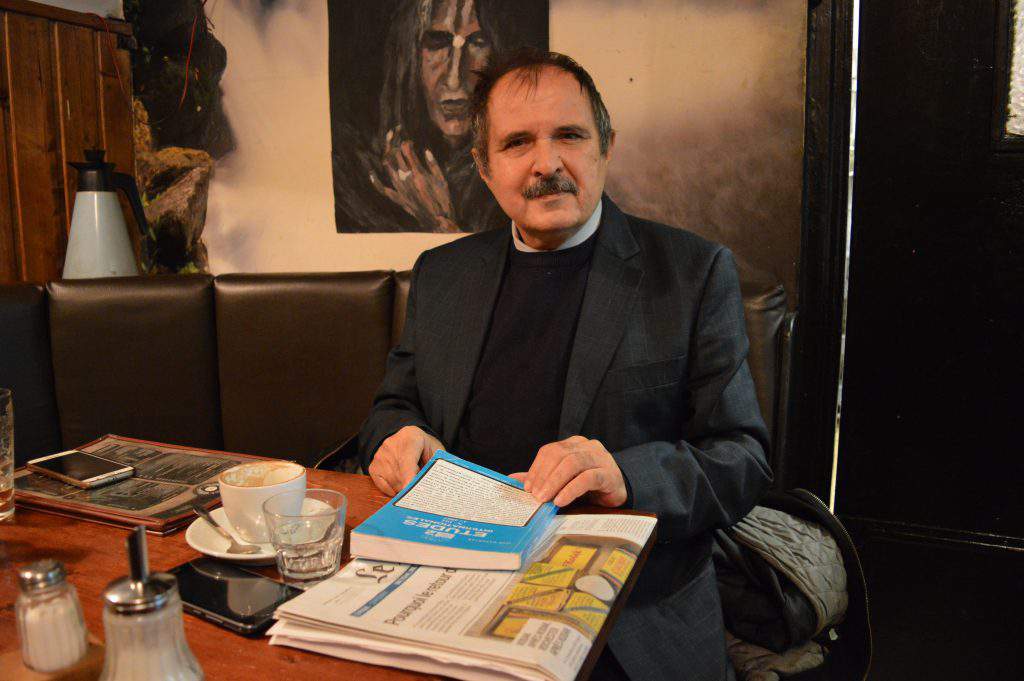Change language:
Built from scratch – Hungarian-Tunisian relations

Hungary opened a credit line of 255 million Euros for Tunisian companies to promote exports in both directions. The number of Tunisian students arriving to Hungary are increasing. Soon there will be a direct flight between Tunis and Budapest. These few facts show how the Hungarian-Tunisian relations have improved over the last years. The first steps for a fruitful cooperation were made by Adnene Damergi who was the head of the diplomatic mission between 2007 and 2012. GLOBS Magazine’s Interview with the first chargé d’affaires en pied of the Republic of Tunisia.
GLOBS: How did you come to Hungary?
Adnene Damergi: I came to this country as a chargé d’affaires in 2007. I spent 5 years in this position. This means that at that time I was a subordinate diplomat who substituted the absent ambassador as our embassy was linked to the Embassy of Tunisia in Vienna. Finally, after 3 years Tunisia has created an embassy on its own in Budapest, in which I was the first chargé d’affaires. Of course it was a long way to go. Before that we were very much in close contact with the embassy in the Austrian capital especially in financing. Every important activity was performed here but we had to wait for the Viannese Embassy to be able to cover the related expenses.
GLOBS: Did you have any knowledge about Hungary before coming to Budapest?
Adnene Damergi: When I started working for the Ministry of Foreign Affairs my department was specialised in East Europe. I was dealing with three countries: Hungary, Romania and Bulgaria. I had contacts with the Hungarian Embassy in Algeria that covered also Tunisia and Lybia. So when I arrived in Budapest I already had knowledge about the countries of this region.
GLOBS: How was the embassy finally set up?
Adnene Damergi: In October of 2009 the Minister for Foreign Affairs of Tunisia, Abdelwaheb Abdallah paid an official visit to Hungary. He was received by Kinga Göncz and also by President László Sólyom and Katalin Szili, Speaker of the Parliament. The three dignities of Hungary asked him when an embassy will be set up here. Of course, back to Tunis, he mentioned it in his report to the Tunisian president. As soon as the legal situation was arranged, in a couple of months the embassy was opened. The new embassy was officially inaugurated in March 2010.

GLOBS: You had to build up the whole embassy. What were your tasks at that time?
Adnene Damergi: We built it from the bottom. We already had an office building but we had to find an ambassadorial residence as well. We signed a new trade and also scholarship agreement. Of course there were some cooperation agreements earlier but they were originating from the socialist time. That is why those ones had to be renegotiated. I had only one diplomat with me and even by such a small staff we were lucky to be independent.
GLOBS: How are the economic relations between Hungary and Tunisia progressing?
Adnene Damergi: We have a joint council of Hungarian and Tunisian businessmen. Especially in the field of agriculture many products are traded and we should not forget about the i-tech industry. Tunisia has strong economic ties with Hungary, which go back to the ’60’s and ’70’s.
The work of the Hungarian engineers can be detected all around the country. That was the time when they were building dams in Tunisia.
GLOBS: You have also made an organisation here to help the growth in trade between the two countries. When did the idea come and how does it work today?
Adnene Damergi: When Abdelwaheb Abdallah, Foreign Minister of Tunisia arrived to Hungary on the occasion of his official visit in 2009 many businessmen were present from both countries. It was time to concentrate on the economic cooperation so we created an official institution for that. After democracy prevailed in Tunisia, the African-Hungarian Union established the Hungarian-Tunisian Business Council with 23 corporations on the initiative of the Embassy of Tunisia in Budapest, in 2011. The Hungarian head of the Council became Sándor Balogh. The first text of the agreement between the Budapest Chamber of Commerce and Industry (BCCI) and the Tunisian Chamber dates back to that period. This is a great opportunity to build contacts, organise forums and meetings to exchange information.
GLOBS: Last year marked the 60th anniversary of Tunisia’s independence, Hungary’s anti-Soviet uprising and the establishment of diplomatic ties between the two countries. We have many similarities in history. Do you agree?
Adnene Damergi: Yes, I believe we are not very far from each other in mentality and I can confirm the same about our history. We were part of the Roman Empire just like the Hungarians were, they had Ottoman Empire for 150 years, Tunisians were under their rule for 220 years. We were colonised by the French, the Soviets invaded Hungary.
GLOBS: What do you think what kind of skills a successful diplomat need?
Adnene Damergi: In order to be able to coordinate issues you need to know many people, to every subject the maximum amount of people. Of course you must be known by them as well. It takes months sometimes even years to create partnership. But the agreements you sign will have a long-term affect.

If you would like to read more interesting articles on GLOBS Magazine, please click HERE
or you can buy online The GLOBS Magazine on DigitalStand
Source: by Gabirella GYÖRGY, Journalist







